How long do air purifiers last
Air pollution is an unnoticed threat to our health. There are more airborne particles in the environment around us than what it was decades ago. The larger particles and smaller particles that are invisible to the naked eye, the dust particles, mold spores, etc., are all hazardous to our respiratory system. Luckily we have advanced portable air purifiers in the market that help to remove contaminants and provide clean air.
It is equally important to change air purifier filters and the air purifier machines themselves as and when required. The clean air delivery rate depends entirely on the performance and efficiency of the air filters inside the air purifier. Air purifiers require filters, sometimes even multiple filters based on their type to remove contaminants and maintain home air quality.
In this article let us discuss further how long air purifier filters last, how much maintenance is required for almost all portable air purifiers to ensure the indoor air quality is perfect, how to carry out regular maintenance of the air purifier running, functioning of the filter inside it, filter replacement, and more.
How long do air purifier machines last?
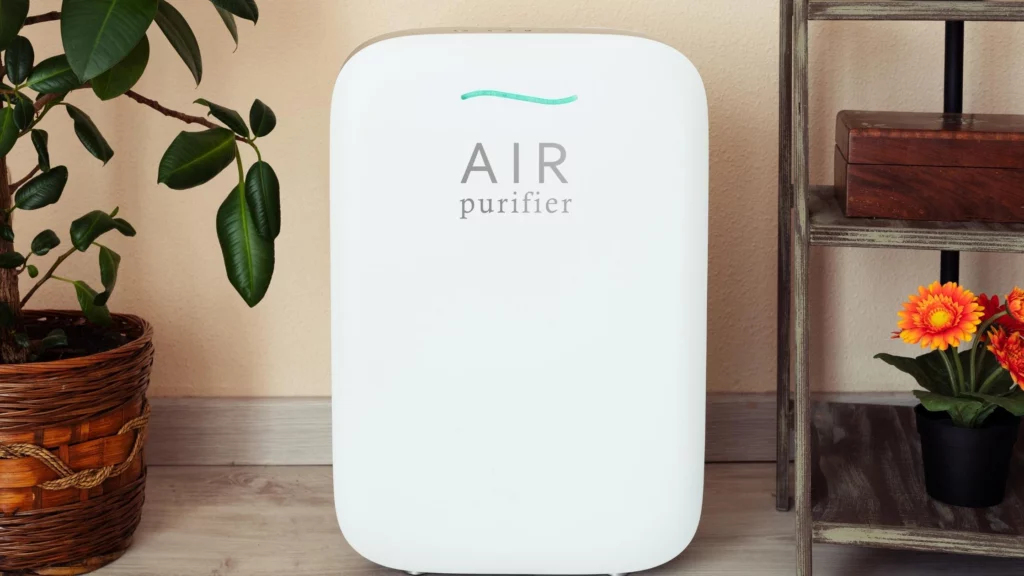
The lifespan of an air purifier machine can vary based on the brand shop. The warranty period offered for the air purifier machine and for its different filters, filter replacements, new filters, etc., will again depend on the brand shop and filter type.
The average lifespan of air purifiers is between 2 to 5 years. How long air purifier filters last and how long air purifier machines last will depend on the maintenance as well. The different filters and filter types will also vary in their durability and the time for replacement filters.
HEPA filters
The most common and trusted filter type to protect and improve home air quality is a true HEPA filter. The high-efficiency particulate air filter or HEPA filter is widely used in almost all air purifiers. To carry out the air filtration process successfully, air purifiers require the best type of air filters that can trap all kinds of harmful pollutants that cause air pollution including pet dander, mold spores, dust particles, small particles, and chemical pollutants, etc.
![High-efficiency particulate air [HEPA Filter]](https://humidityfixers.com/wp-content/uploads/2022/08/High-efficiency-particulate-air-HEPA-Filter-1024x576.webp)
A true HEPA filter is capable of capturing fine particles up to 0.3 microns in size. Most HEPA filters come with a MERV rating between 7 and 13. The fine particle HEPA filters are made up of foam, cotton, or fine mesh. Most HEPA filters in modern air purifiers are advanced and come with multiple filters system in their air purifiers making this method to trap more airborne particles highly effective and safe.
HEPA filters are even used in hospitals to tackle the poor indoor air quality that hospitals are prone to. If you suspect that your home has poor indoor air quality from smaller particles like mildew and spores and other allergens, you must look into buying air purifiers with HEPA filters along with other filters to keep allergy symptoms away.
Activated carbon filters
Another common air purifier filter is the activated carbon filter. This air purifier filter cannot function independently to trap harmful pollutants. Hence an activated carbon filter is one of the air purifier filter types that need to be used in combination with other filters or technology.
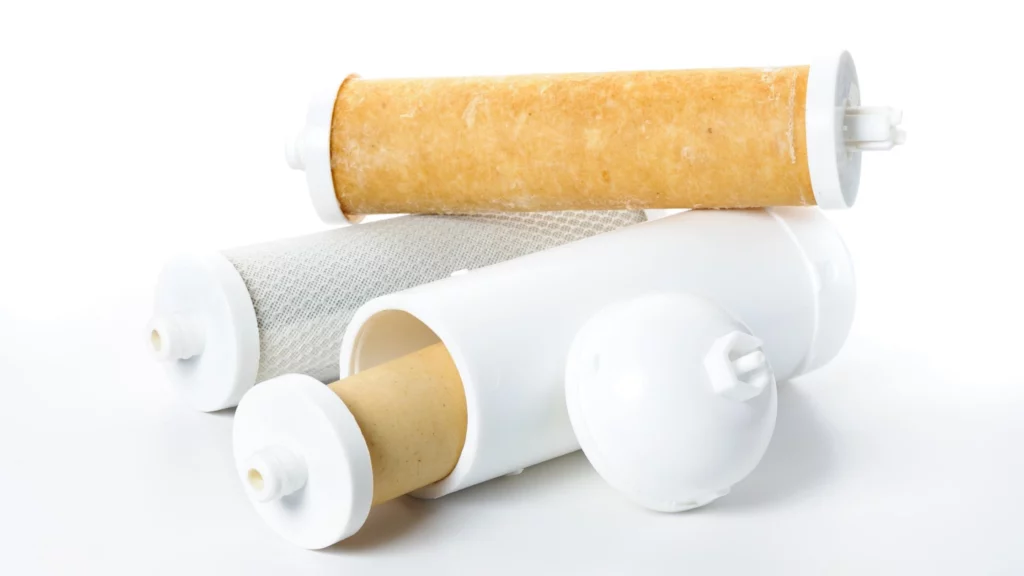
Activated carbon filters are also one of the best air filter technologies that comes extremely helpful to keep chemical pollutants away. Those with chemical sensitivities and allergy symptoms should try air purifier models that use a carbon filter. Apart from helping with chemical sensitivity, modern air purifiers with carbon filter designs are also equipped to remove unpleasant odors. If your home is battling with unpleasant odors, whether from pet dander or from other allergens, you must look into air filters with carbon.
Pre-filters
Most air purifiers are designed with pre-filters. A pre-filter layer is extremely helpful and makes the purification task easier. As the air passes through the pre-filter layer, the larger contaminants are removed successfully. When the larger contaminants are filtered out as the air passes, you can be assured of the effortless and faster air filtration process.
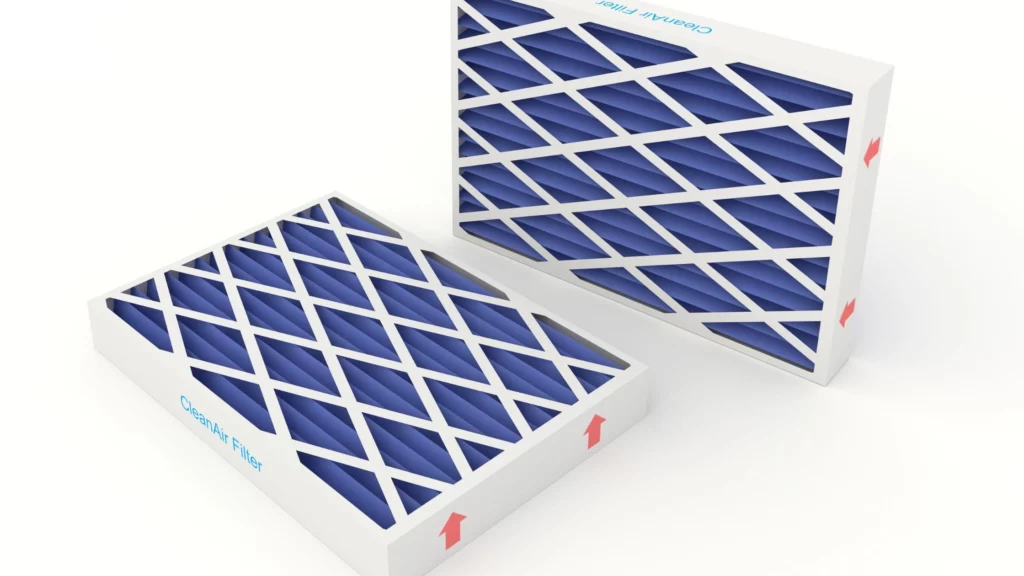
Pet dander, hair, pollen, fiber, and other allergens of this size can be successfully trapped in the pre-filter zone before the air reaches the main filter area.
Media filters
A cheaper alternative to expensive or high-quality HEPA filters is the Media filter. Many latest air purifier models come with this design where a media filter is provided as an alternative, and it has been found to be effective in its function of trapping large airborne contaminants.
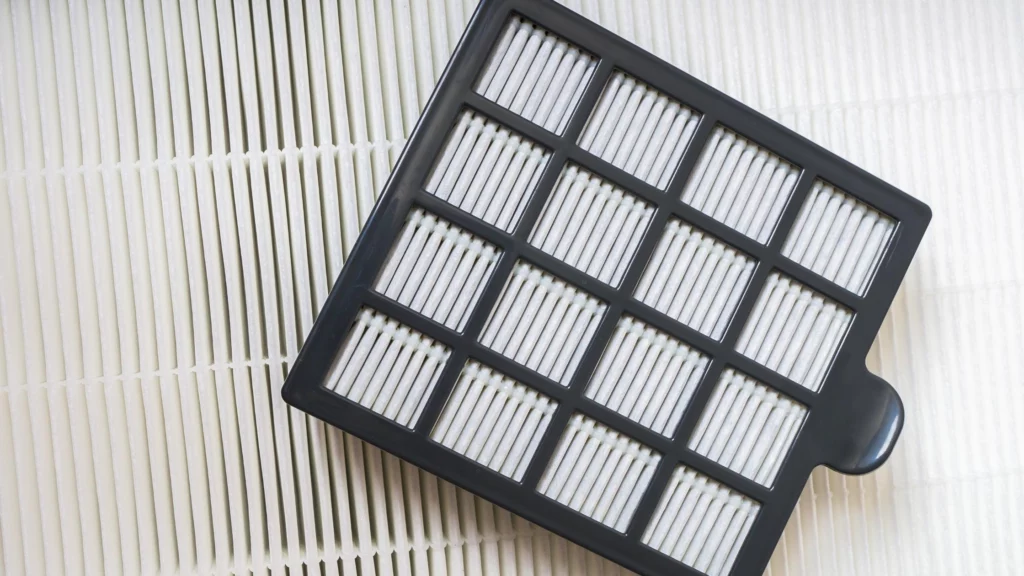
A media filter is an air filter large that is made of shredded material. This can include sand, crushed glass, foam, textile, activated carbon, and other materials compressed together. Media air filters are very thin and well-compressed layers that are deeply pleated.
Electrostatic filters
Another popular air filter type is the electrostatic filter. Designed with high durability and even longevity, electrostatic filters are reusable air filters. The material used to make an electrostatic filter is paper fiber and cotton. These types of air purifier filters last up to 3 to 5 years with proper maintenance.
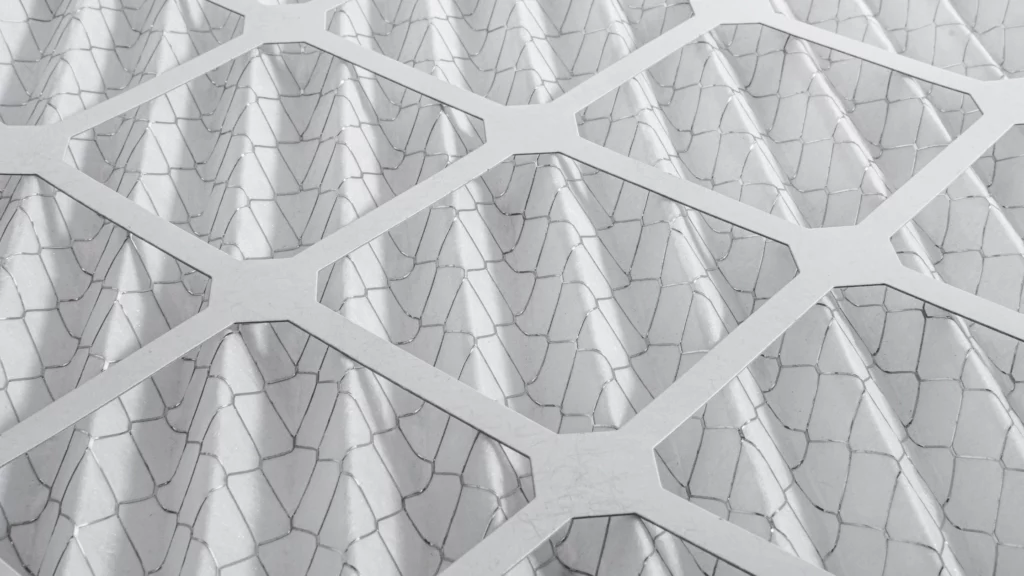
Electrostatic filters are functional and widely seen but they come with the disadvantage of filtering out large airborne particles and inefficiency to improve the indoor air quality to a great extent. Nevertheless, electrostatic filters are also an option.
UV filters
Among the other filter types is ultraviolet light. Air purifiers require a UV lamp when their air purifier filters use ultraviolet light. An air purifier device with the UV lamp functions where the light will penetrate the cell of the microorganism when it enters the device. Airborne particles, whether they are larger particles or small, are all harmful to the air quality and need to be removed. Among these other allergens, microbes are the notorious lot.
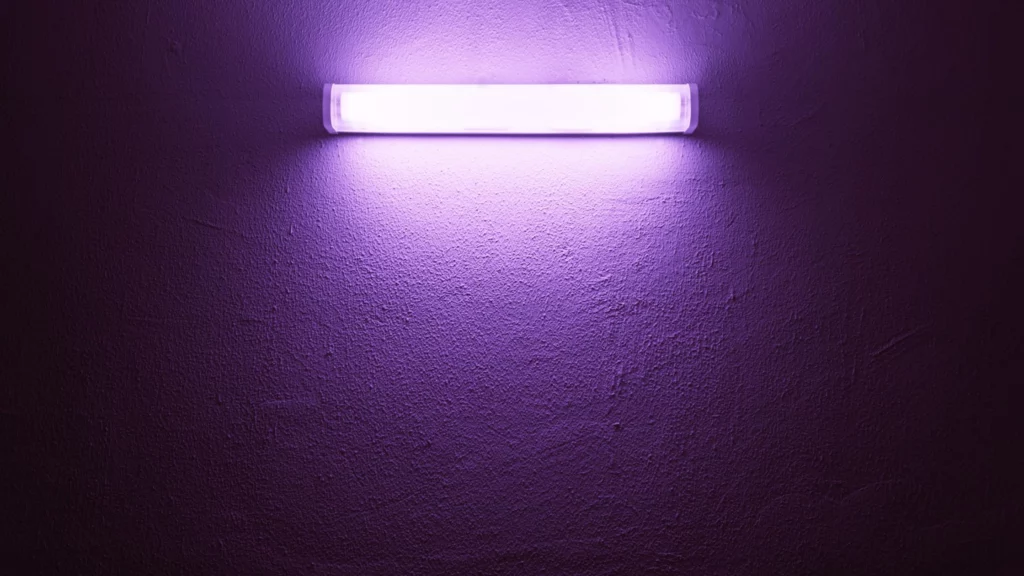
One must remember that this UV filter type also cannot function independently. Like few other air purifier filter types, this air filter also will operate along with HEPA filters to carry out their function and give your home purified air.
How often should you replace an air purifier?
Some air purifier filters last longer than the other filter types. This could either depend on the brand shop or design of the particular filter type, or it could simply depend on how much maintenance effort is spent on the air filter. Here we have an estimate of the approximate time period within which an air filter inside the air purifier is required to be replaced or how long do air purifier last.
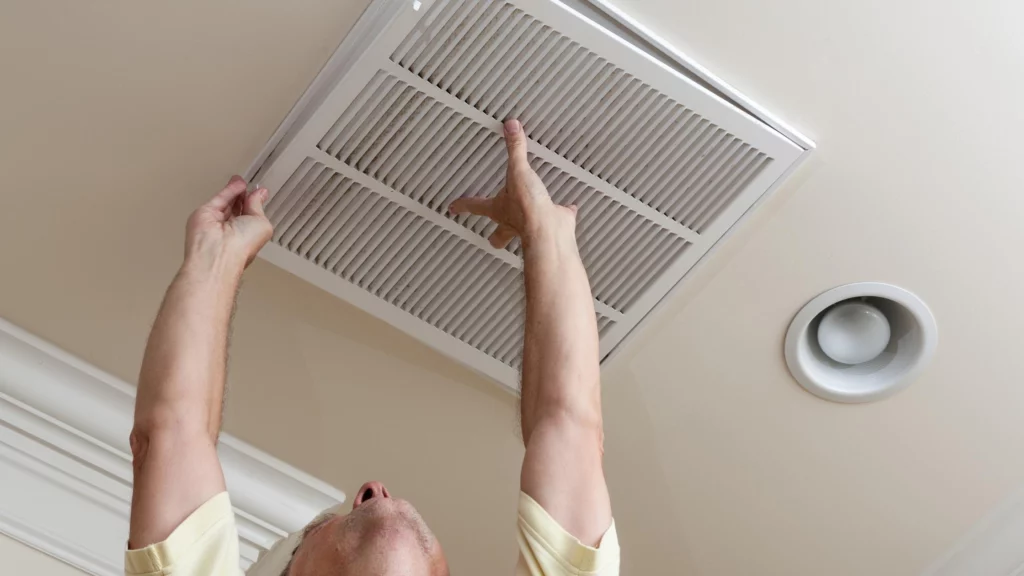
Pre-filters:
The pre-filters within an air purifier must be cleaned once in every 30 days and replaced when necessary.
Permanent filters:
Some air purifier filters are permanent filters. These can be reused after cleaning them. Electrostatic filters are an example of reusable filters. However, these permanent filters have to be cleaned once every 3 months and must be replaced with a new air purifier filter once it is damaged.
Permanent filters are not a widely recommended option as high-quality air purifier filters. They might help you save money over having constantly to purchase new filters, but replaceable filters are better for those with high allergic reactions and chemical sensitivities.
Media filter:
Models with media air purifier filter types have to be replaced every 6 to 12 months.
HEPA filters:
An air purifier with HEPA filters should be replaced every 12 to 18 months.
Carbon filters:
Activated carbon filters are also a widely available model in top selling air purifier units. These have to be replaced every 3 to 6 months.
How many hours a day should you run an air purifier?
The purpose of having an air purifier at home is to improve the quality of indoor air. Running the device for a couple of hours is of no good. An air purifier is built and expected to be on the run round the clock. Only this will ensure that your home is free from all kinds of airborne toxins and allergens.
However, this might not be a feasible option for everyone. Energy efficiency and lifestyle can come into play. If running the air purifier for 24 hours is not possible, it is highly recommended that you allow the device to operate for 12 hours a day. This time frame is sufficient to keep the toxins and allergens away from your environment.
Switching over to low fan speed settings or investing in an energy-efficient model are some ways that can support the option to run the unit throughout the day and night.
7 Factors that reduce Lifespan of Air Purifiers
Having answered the question of how long do air purifier units last, the next is to be aware of the various factors that have an effect on the lifespan of the unit. The following is a list of factors that can reduce the durability and lifespan of your air purifier filter.
1. Indoor Air
If the quality of the indoor air is poor by default, the stress on the air purifier filters and will be more and this will rescue the efficiency of the unit. If there are a lot of allergens and particles in the air, the pressure on the air filter will also be more. A space that is vacuumed regularly would help you to remove the larger particles that could cause clogging.
2. Water
The water quality of your home is another factor that can cause damage and reduce the performance and quality of permanent filters. If your home has tap water that is rich in materials, it is a sure sign that the permanent filters will soon have deposits accumulating on them while getting washed for reuse. This unwanted clogging of the air filter will lead to reduced lifespan in the unit.
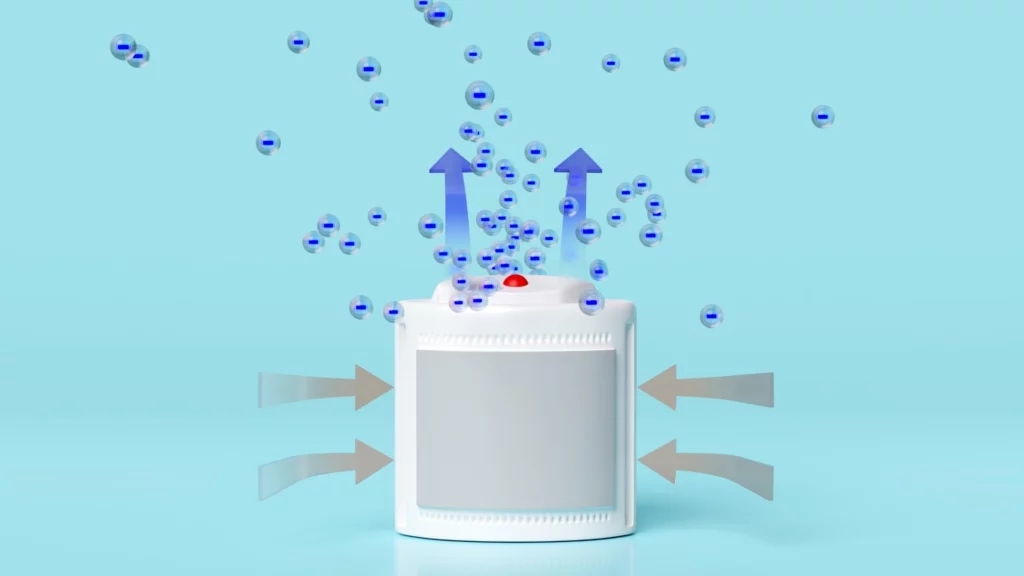
3. Dust
When there is too must of uncleaned dust on and inside the unit, especially in the filters, you can expect a reduced lifespan. Ensuring that the room is vacuumed regularly can avoid this concern for you.
4. Capacity
Using the right capacity of air purifier unit that will suit your room size is important. The area to be covered must be within the limits of performance. A large room size with a small unit will reduce the durability of the unit eventually.
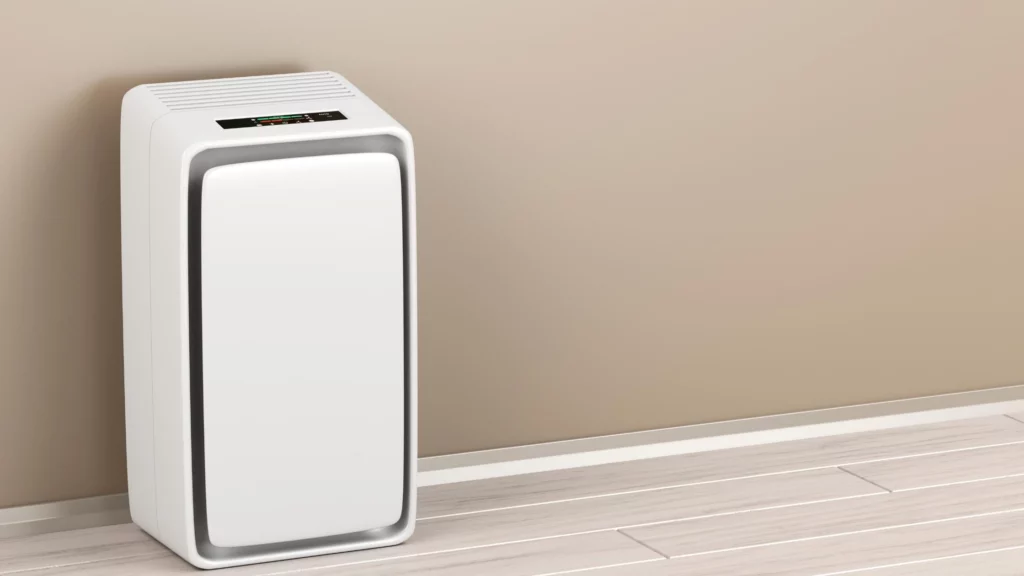
5. Usage
The amount of time your air purifier and air filter spend working will have a direct influence on its durability. As aforementioned, these units are designed to work round the clock, even at a high fan speed. This calls for high maintenance and consistent care. If you neglect timely service, you will end up reducing the life span of the air purifier filters.
6. Filter
It is crucial to invest in the right type of air purifier filters to suit the unit. Air purifier filters last longer when they are used with care and for the right purpose. Misfitted or incorrectly used air purifier filters last for a lesser period of time.
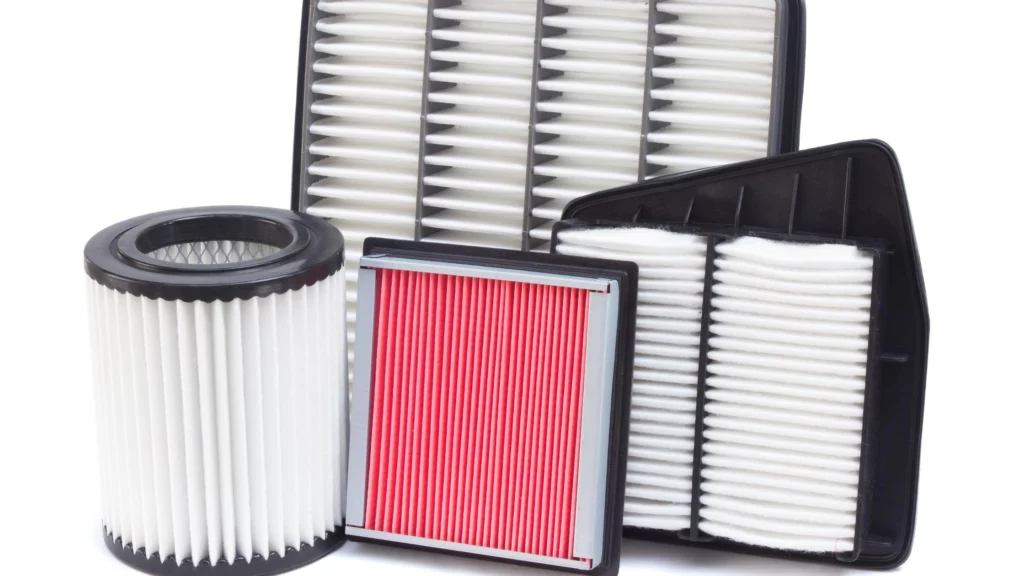
7. Brand shop
Last but not the least, finding the right brand shop with the best quality HEPA filters or other filter types is the wise way to save money being wasted on unexpected unit repair and replacements.
FAQ Section
1. Why do air purifiers stop working?
There are several factors that determine how long air purifier filters last. A few of the many reasons could be dust accumulation on the pre-filter and air filter area, terrible air quality, wide coverage wherein the size of the air purifier and the air purifier filters is not sufficient for the area it is placed in, the air filter and the air purifier device not correctly placed, too many obstructions along the path of the airflow.
Regular maintenance and prompt filter replacement will ensure that the air purifier filters last longer. All air purifiers require filters that can be easily checked on and replaced when essential.
2. How long will a HEPA filter last?
As aforementioned, how long air purifier filters last and how often they require to be replaced will depend on the brand shop of the air filter. However, as a rule of thumb, it is recommended that HEPA filter replacement should be done every 6 to 12 months. Even if you do not notice a decline in the efficiency of the HEPA filters in your air purifier, you must set a reminder for filter replacements once in 6 to 12 months.
How often the replacement filters are required will depend on the air quality and the amount of air filtration that is carried out on a daily basis.
3. How do you know if HEPA filter is dirty?
It is easy to recognize when the HEPA filters are dirty. If you notice a visible change in color to gray, dirty, or dust accumulation on the air filter, it clearly indicates that the HEPA filter is dirty.
However, experts suggest that the HEPA filter type should not be cleaned when it gets too dirty, rather you must opt for filter replacement with the same filter type.
4. What do you do with an old filter air purifier?
Almost all air purifiers and air purifier filters that are not in use anymore can be safely disposed of. It is important to prevent air purifier filters and air purifier devices from going directly into the landfill.
To dispose of your old air purifier and air purifier filter consciously, you can contact Responsible Appliance Disposal (RAD), specialty recycling companies, and scarp yards. If the air purifier device is in working condition but you will not be using it anymore the best option is to donate it to any place where the air purifier will be of use.
5. What is the maintenance cost of air purifier?
To keep an air purifier running with efficiency consistent maintenance is required. It is understandable that more maintenance expenditure costs cannot be met by everyone and therefore investing models that do not call for more maintenance cost is suggested.
The cost of maintenance of an air purifier will depend on the brand shop, the filter type, and the kind of problem that needs attention. It can cost anywhere ranging from $350 to $1500, or even at a low of $65 if the issue is trivial.
That’s an end to the article. We hope you found the ways to care for air purifier filters, their types, and how you can make them last longer and deliver exceptional performance. Share with us your experiences with using air purifiers for indoor air purification and about the filter type within your unit.
Wrapping Up
That’s an end to the article. We hope you found the ways to care for air purifier filters, their types, and how you can make them last longer and deliver exceptional performance. Share with us your experiences with using air purifiers for indoor air purification and about the filter type within your unit.

About The Author
Olivia — a self-confessed air quality addict — is a home climate enthusiast, fresh air advocate, and someone with deep personal experience and knowledge about mold extermination. Her work was mentioned in countless notable humidity publications. Previously she was an editor at Mold Remediation.